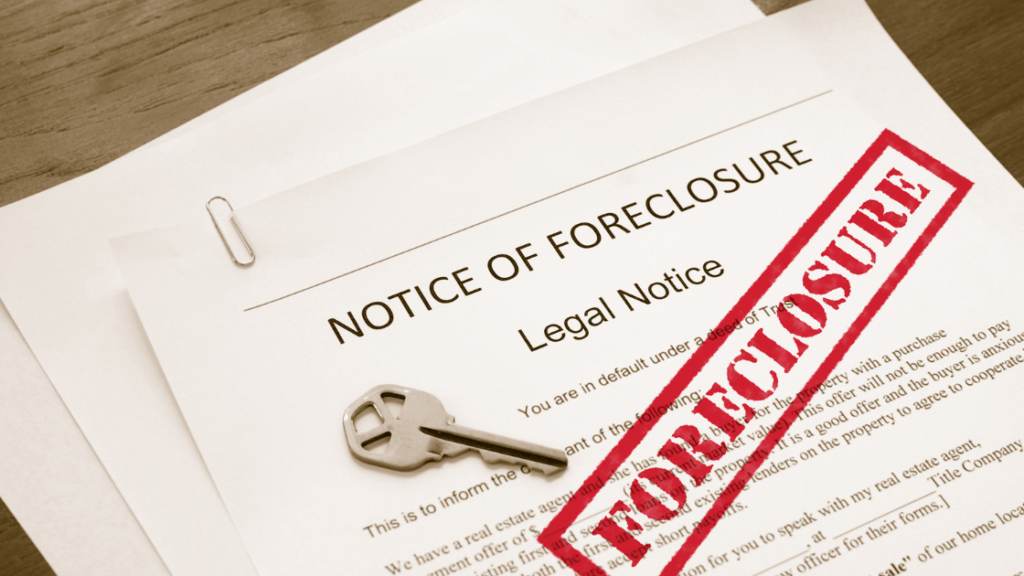

If you’re facing foreclosure you likely feel as though the world is falling out from under your feet, and you have no control. We understand how it feels to be in your position, full of anxiety for the future. In this article, we’ll guide you through what to expect during this process, your rights, and your options. We aim to empower you so you can start taking back control of your life.
Foreclosure never feels fair, but know that Massachusetts (and many federal) laws are on your side to ensure you don’t lose your home without a fair opportunity to right the situation. Mortgage lenders have strict requirements they have to meet to legally be able to foreclose on your home.
All foreclosure processes start with notice of a missed payment and then notice of default (often called a Breach Letter). You’ll have the opportunity at this point to make arrangements to pay your missed payment. If you’re still at this stage, don’t be so embarrassed by your situation that you won’t reach out to your lender – the worst thing you can do is keep them in the dark.
If you can, call (or ask a close friend or family member to do so for you) your lender and explain the situation. If you don’t, your lender will contact you within 36 days of a missed payment to discuss possible options with you. Most lenders should offer you some kind of loan modification or delayed repayment plan to give you a chance to get back on your feet.
Your lender may charge late fees on payments during this time, and do “drive-by” inspections to ensure the property is occupied and being appropriately maintained (“appropriately maintained” in this context usually means that they’re checking it’s not being vandalized in some way) which costs $10-$15.
Federal law dictates that a lender cannot start the foreclosure process until you’re more than 120 days late on your payments, which gives you time to speak to them and find an alternative solution.
The foreclosure process in Massachusetts takes a minimum of 3 months. If the lender is timely with all their notices and moving the process forward, it can take exactly 3 months, otherwise the foreclosure process can be much longer.
There are two types of foreclosure, Judicial Foreclosure and Nonjudicial Foreclosure. In the simplest of terms, Judicial foreclosure simply means that it takes place in court, and Nonjudicial means that it doesn’t.
The lender will file a lawsuit asking the court to allow them to foreclose on your property. You must respond with a written answer, or the judge will automatically grant the lender the case and they’ll be able to sell your home. You can, however, defend yourself with a written defense, which will then be reviewed by a judge. A judge will then decide who wins, and if the lender does, they can move forward with foreclosure.
If a lender decides to do a nonjudicial foreclosure, they must follow state statutes and complete all the required steps before they can sell your home. This is the preferred method of foreclosure for lenders because it’s often faster and cheaper than taking things to court.
Once your lender has completed all the required steps and if you have been unable to come to an alternative arrangement, they will sell your home. Often, lenders will sell a foreclosed home through an auction, but this isn’t always the case. The only interest of the lender is to make back their losses, so that’s all they’ll be looking for. However, if your property does sell for more than they have the right to, you will receive the remaining money.
While your home is owned by a bank, they cannot evict you without just cause. The new owner, however, can. You will not be evicted before the sale of the home is complete, but after that, it’s unlikely the new owner will allow you to stay unless you can speak to them and come up with a temporary rental agreement.
There are many laws in place to protect you during this process, but knowing what they are and how they protect you can be confusing – there’s a lot of legal jargon. Here are some of the most important laws you should know:
Some additional resources you may find helpful in knowing your rights are Foreclosure Relief Options (CFPB) and the Making Homes Affordable website.
There are several ways you can stop (or avoid) the foreclosure process. You can:
Now you know what to expect, you can start taking control of what’s happening and make some key decisions about where you want to go from here. For most homeowners facing foreclosure, the best thing to do is to sell your home before your lender sells it so you can maximize your profit and stay in control of your moving date.
We buy homes for cash in Massachusetts fast, allowing you to pay off your lender and move on as soon as possible. You don’t need to do any repairs, you can avoid realtor fees, and move on from this difficult time in your life as quickly as possible. We’ll give you our best cash offer upfront so you can decide whether to take it or leave it – you’re under no obligation to accept and you don’t need to negotiate.
Selling a property in today's market can be confusing. Get in touch with us by submitting the form below and we'll get back to you to discuss your options.